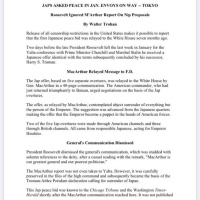Johns Hopkins Researchers: Lockdowns Had Little Impact on COVID Deaths
The first day of new stay-at-home orders on Dec. 7, 2020 in West Hollywood, California. (Mario Tama/Getty Images)
By Nicole Wells | Tuesday, 01 February 2022 11:23 AM
facebook twitter
Comment| Print| A A
Johns Hopkins University researchers say lockdowns in the U.S. and Europe had little to no impact in reducing COVID-19 deaths.
According to a new analysis of dozens of scientific studies, the lockdowns during the early phase of the pandemic in 2020 reduced COVID-19 mortality by about 0.2%.
"We find no evidence that lockdowns, school closures, border closures and limiting gatherings have had a noticeable effect on COVID-19 mortality," the researchers wrote.
The lockdowns did have "devastating effects" on the economy, however, and contributed to numerous social ills, the paper noted.
"They have contributed to reducing economic activity, raising unemployment, reducing schooling, causing political unrest, contributing to domestic violence and undermining liberal democracy," the researchers said.
"Such a standard benefit-cost calculation leads to a strong conclusion: Lockdowns should be rejected out of hand as a pandemic policy instrument," the paper concluded.
Citing the recommendations of leading healthcare experts, 186 countries and many states imposed restrictions on work, socialization, in-person schooling and travel early on in the pandemic to curb the spread of the virus.
Researchers at the Imperial College London claimed that such measures could reduce death rates by up to 98%.
Researchers Steve Hanke, Jonas Herby, and Lars Jonung at Johns Hopkins say that never happened.
"Overall, we conclude that lockdowns are not an effective way of reducing mortality rates during a pandemic, at least not during the first wave of the COVID-19 pandemic," they wrote.
The researchers examined deaths early in the pandemic and found that, by May 20, 2020 — the end of the lockdown period studied — a total of 97,081 people had died of COVID-19 in the United States.
At the time, one study had projected 99,050 deaths without lockdowns.
Despite the overall findings, there was some evidence to indicate that closing bars helped reduce deaths, the researchers found.
"Closing nonessential businesses seems to have had some effect (reducing COVID-19 mortality by 10.6%), which is likely to be related to the closure of bars," they said.
According to the researchers, the timing of lockdowns, and their unintended consequences, may play a larger role in affecting mortality than expected.
"Lockdowns have limited peoples’ access to safe (outdoor) places such as beaches, parks and zoos, or included outdoor mask mandates or strict outdoor gathering restrictions, pushing people to meet at less safe (indoor) places," they wrote. "Indeed, we do find some evidence that limiting gatherings was counterproductive and increased COVID-19 mortality."
Hanke is the founder and co-director of the Johns Hopkins Institute for Applied Economics, Global Health, and the Study of Business Enterprise. Herby is special adviser at Center for Political Studies in Copenhagen, Denmark. Jonung is professor emeritus in economics at Lund University, Sweden.
Lockdowns Reduced COVID Mortality Only 0.2 Percent: Johns Hopkins Analysis
ロックダウンによりCOVIDの死亡率はわずか0.2%減少。ジョンズ・ホプキンスの分析
ロックダウンによりCOVIDの死亡率がわずか0.2%低下 ジョンズ・ホプキンス大学の分析
(Erin Alexis Randolph/Dreamstime.com)
By Luca Cacciatore|2022年2月1日(火)09:37 PM
ジョンズ・ホプキンス大学が先月発表した研究の分析結果によると、2020年春のロックダウンにより、COVID-19による死亡率が欧米でわずか0.2%しか減少しなかったとFox Newsが報じた。
ジョンズ・ホプキンス大学の経済学教授Steve Hanke氏、ルンド大学の経済学教授Lars Jonung氏、コペンハーゲン政治研究センターの特別顧問Jonas Herby氏は、学校の閉鎖、企業の閉鎖、マスクの義務化がCOVID-19の死亡率にどのような影響を与えるかに関する様々な研究を分析しました。
このメタアナリシスでは、ロックダウンは公衆衛生にほとんど影響を与えないと結論づけているが、ロックダウンが採用された場所では莫大な経済的・社会的コストがかかっている」と研究者たちは書いている。結果として、ロックダウン政策は根拠のないものであり、パンデミック政策の手段としては否定されるべきである」としている。
ヨーロッパやアメリカでは、COVID-19による死亡率にロックダウンの義務化が顕著な影響を与えたという証拠はほとんど見当たらない」と付け加えている。
また、研究者らは、屋内退避命令がCOVID-19による死亡率を増加させた可能性について、「感染者を自宅で家族と一緒に隔離することで、ウイルス量の多い家族に感染させ、より重篤な疾患を引き起こす危険性がある」と結論づけています。
研究者たちは、ロックダウンの意図しない結果も強調しています。
2020年5月から2021年4月にかけて、米国では薬物過剰摂取による死亡者数が10万306人を記録し、前年比で28.5%増加したことが、米国疾病対策センターのデータで明らかになりました。
失業率は、2020年4月に全国で14.8%とピークに達したことが米国議会調査局の調べでわかりました。
これらの社会的コストは、ロックダウンの利益と比較しなければならないが、我々のメタ分析では、せいぜい限界であることが示されている」と研究者は書いている。このような標準的なベネフィット・コストの計算は、パンデミック政策の手段としてロックダウンを直ちに拒否すべきであるという強い結論を導き出す」としている。
Lockdowns Reduced COVID Mortality Only 0.2 Percent: Johns Hopkins Analysis
(Erin Alexis Randolph/Dreamstime.com)
By Luca Cacciatore | Tuesday, 01 February 2022 09:37 PM
facebook twitter
Comment| Print| A A
An analysis of studies released last month by Johns Hopkins University indicated that lockdowns in the spring of 2020 reduced COVID-19 mortality by only 0.2% in the U.S. and Europe, Fox News reported.
Johns Hopkins University economics professor Steve Hanke, Lund University economics professor Lars Jonung, and Jonas Herby, special adviser at Copenhagen's Center for Political Studies, analyzed various studies regarding how school shutdowns, business closings and mask mandates affected the COVID-19 death rate.
''While this meta-analysis concludes that lockdowns have had little to no public health effects, they have imposed enormous economic and social costs where they have been adopted,'' the researchers wrote. ''In consequence, lockdown policies are ill-founded and should be rejected as a pandemic policy instrument.''
''We find little to no evidence that mandated lockdowns in Europe and the United States had a noticeable effect on COVID-19 mortality rates,'' they added.
The researchers also concluded that shelter-in-place orders may have increased COVID-19 mortality by isolating ''an infected person at home with his/her family where he/she risks infecting family members with a higher viral load, causing more severe illness.''
The researchers also emphasized the unintended consequences of lockdowns.
From May 2020 to April 2021, the U.S. recorded 100,306 drug overdose deaths, a 28.5% increase from the previous year, Centers for Disease Control and Prevention data showed.
The unemployment rate peaked nationwide at 14.8% in April 2020, Congressional Research Service found.
''These costs to society must be compared to the benefits of lockdowns, which our meta-analysis has shown are marginal at best,'' the researchers wrote. ''Such a standard benefit-cost calculation leads to a strong conclusion: lockdowns should be rejected out of hand as a pandemic policy instrument.''

























